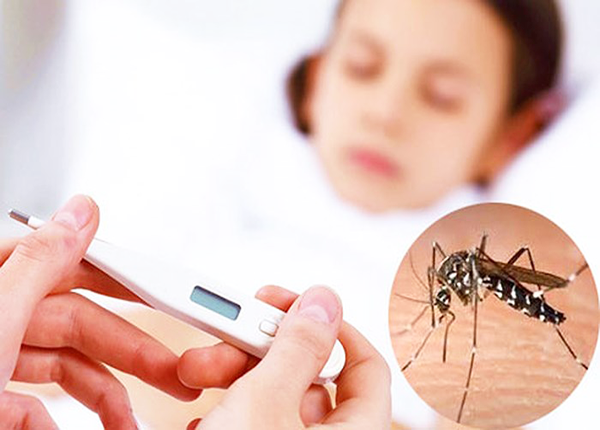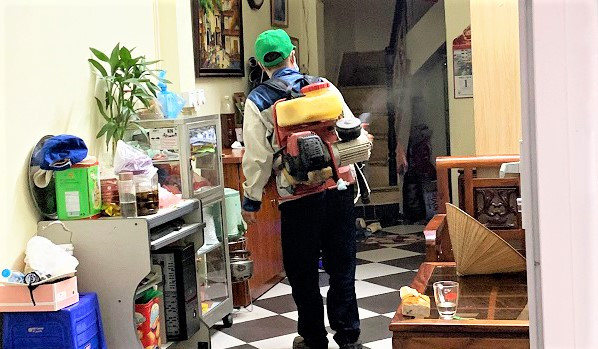Dengue fever 2023 is a global burden
Dengue fever is an infectious disease caused by the dengue virus and is transmitted from person to person mainly through the bite of infected mosquitoes. About half of the world's population is at risk of dengue fever and there are an estimated 100-400 million cases worldwide each year.
The WHO 2023 Global Update on Dengue Information shows that the incidence of dengue has increased significantly globally in recent decades, rising from 505,430 cases in 2000 to 5.2 million cases in 2019.
Most cases of dengue are asymptomatic or mild and self-treated at home, so the actual number of dengue cases is underreported. Many cases are also misdiagnosed as other febrile illnesses.
One model estimates that there are 390 million cases of dengue fever worldwide each year, of which 96 million are clinically symptomatic. Another study estimated that 3.9 billion people are at risk of dengue infection. Dengue fever is currently endemic in more than 100 countries in Africa, the Americas, the Eastern Mediterranean, Southeast Asia, and the Western Pacific.
The Americas, Southeast Asia and the Western Pacific are the most severely affected regions, with Asia alone accounting for approximately 70% of the global dengue disease burden.
Dengue is spreading to new areas including Europe and outbreaks are occurring. Local transmission was first reported in France and Croatia in 2010 and imported cases were detected in three other European countries. The largest number of dengue cases ever reported globally was in 2019. All areas are affected and the first dengue transmission was recorded in Afghanistan.
The Americas region reported 3.1 million cases, with more than 25,000 severe cases. Large numbers of cases were also reported in Bangladesh (101,000 cases), Malaysia (131,000 cases), the Philippines (420,000 cases), and Vietnam (320,000 cases) in Asia. Dengue continues to affect countries including Brazil, Colombia, the Cook Islands, Fiji, India, Kenya, Paraguay, Peru, the Philippines, the Reunion Islands, and Vietnam as of 2021.

Dengue fever is found commonly in tropical and subtropical climates around the world, with the disease being more prevalent in urban and semi-urban areas.
Many cases of dengue virus infection are asymptomatic or cause only mild illness, while in some cases dengue virus infection can cause more severe illness and even death.
Prevention of dengue fever depends on vector control. Since there is currently no specific treatment for the disease, early detection and appropriate treatment will significantly reduce the mortality rate caused by severe dengue.
Dengue fever has no symptoms and is easily confused with other fevers.
Most people with dengue fever have mild or no symptoms and will gradually recover and get better in 1-2 weeks.
Rarely, dengue hemorrhagic fever can be severe and lead to death. If symptoms do occur, they usually begin 4 to 10 days after infection with the dengue virus and last 2 to 7 days.
Clinical symptoms may include:
+ High fever (40 degrees Celsius)
+ Severe headache
+ Pain behind the eyes
+ Joint and muscle pain
+ Nausea and vomiting
+ Rash

Second dengue fever has a risk of more severe illness?
Are people who get dengue fever for the second time at higher risk of severe illness? This is a question that many patients worry about. It is recorded that people who get dengue fever for the second time are at higher risk of severe illness. Symptoms of severe dengue fever often appear after the fever has gone, including:
+ Severe abdominal pain
+ Continuous vomiting
+ Rapid breathing
+ Bleeding gums or nosebleeds
+ Fatigue
+ Restless
+ Vomiting blood or bloody stools
+ Thirst
+ Pale and cold skin
+ Feeling weak
People with severe symptoms such as the above should seek medical attention immediately. After recovering, people who have had dengue fever may feel tired for several weeks.
Proactively prevent dengue fever
Mosquitoes that transmit dengue fever are active during the day. To reduce the risk of infection by protecting yourself from mosquito bites, use:
+ Clothing covers as much of the body as possible
+ Sleep under a mosquito net during the day, preferably with a mosquito net treated with insecticide.
+ Window curtain
+ Mosquito repellents (containing DEET, Picaridin or IR3535)
+ Mosquito coil
If you have dengue fever, it is important to:
+ Need to rest
+ Need to drink lots of water
+ Acetaminophen (paracetamol) can be used for pain relief.
+ Avoid anti-inflammatory drugs such as ibuprofen and aspirin
+ Watch for serious symptoms and contact your doctor as soon as possible if you notice any unusual signs.
To date, one vaccine (Dengvaxia) has been approved and licensed for use in several countries. However, only people with evidence of previous dengue infection can be protected by this vaccine.
Dengue fever is still a dangerous infectious disease caused by dengue virus transmitted from mosquitoes to humans. The disease is common in tropical and subtropical climates.
Most people with dengue fever will have no symptoms or mild symptoms. But for those who do have symptoms, the most common are high fever, headache, body aches, nausea and rash. Most people recover in about 1-2 weeks. Some people with severe illness will need intensive care and treatment in hospital.
Severe cases of dengue fever can be fatal. People can reduce their risk of getting dengue fever by avoiding mosquito bites, especially during the day. Dengue fever is treated with painkillers and some symptomatic medications because there is currently no specific treatment.
